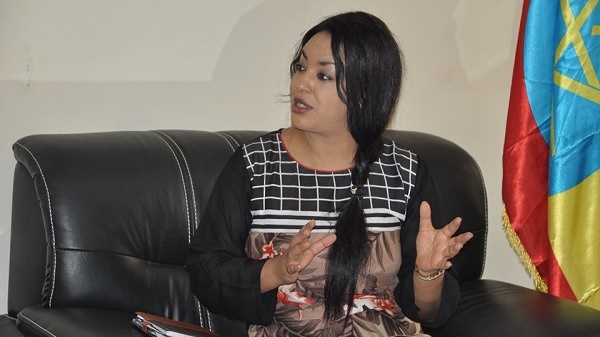
ADDIS ABABA (ILO News) – The ILO in collaboration with the tripartite partners; Ministry of Labor and Social Affairs, Confederation of Ethiopian Trade Unions, Ethiopian Employers’ Confederation and Ethiopian Industry Employers’ Confederation officially launched the program ‘Advancing Decent Work and Inclusive Industrialization in Ethiopia’ on July 3, 2019.
The program was launched in the presence of Her Excellency Minister Dr. Ergoge Tesfaye, Ministry of Labor and Social Affairs. In her opening remark Dr. Ergoge emphasized on the government key development priority of creating employment and Decent Work that brings about increased productivity and competitiveness.
”The government of Ethiopia recognizes that an inclusive and job rich growth through decent work is the backbone for achieving the Growth and Transformation Plan vision of becoming a middle income country by 2025” Dr. Ergoge stressed The Garment and Textile industries are the priority sector in Ethiopia. The Ethiopian Government has set out plans to increase its textile and garment exports by US $ 1 billion through its Second Growth and Transformation Plan II (GTP II). The sector is also expected to create more than 300,000 jobs during the planed period.
“Our government is not only looking for attracting investment that can create more jobs but is focused on attracting quality investment that creates decent jobs and significantly change workers life” emphasized Minister Dr. Ergoge.
ILO’s Program places decent and human-centered approaches as cornerstone of the future of industrialization here in Ethiopia with an initial focus on the Garment and Textile Industry. At the national level, under the leadership of the tripartite partners the project will facilitating dialogue among multiple stakeholders in developing common vision and strategies to make Ethiopia an African hub of socially responsible production of garment for both global and domestic market. The program will also support the tripartite constituents for fixing minimum wage as well as enhance the capacity of government institution to prevent and resolve Labor dispute. At the regional and sectorial level, the project will assist Labor administration in strengthening the capacity of its inspectors. At the same time, the program aims to establish a robust, sustainable and inclusive industrialization compliance system. To ensure occupational health and safety, the program also aims to establish sustainable work place injury prevention, protection and compensation system. At the factory level, the project is providing demand-driven capacity building support to improve factory productivity, working conditions and industrial relations. This includes supervisory, human resource skills and incorporates gender equality and diversity principles to encourage women workers reach leadership positions.
Continue reading this story at ILO News
